The Heavy Price of Parental Pressure: A Deep Dive into Lola Idije’s ‘Black Wedding’
The Yoruba cinema landscape has always excelled at delivering high-stakes family drama, often centered on the eternal conflicts of wealth, tradition, and the sanctity of marriage. Black Wedding, featuring a heavy-hitting cast led by veteran Lola Idije and contemporary favorites Adeniyi Johnson and Seyi Edun, positions itself immediately as an essential watch within this genre. However, the film quickly subverts the expected romantic comedy setup, plunging into a chilling narrative of familial control and personal agony.
The plot pivots on a seemingly successful young man (Adeniyi Johnson’s character) whose life is utterly dictated by his overbearing mother (Lola Idije), a powerful matriarch obsessed with securing her son’s future her way. This security, naturally, involves a strategic marriage to a woman who meets her impossible standards—standards that have nothing to do with genuine love or emotional connection. The conflict is immediate and jarring: the son harbors an existing, genuine affection for another woman, yet he is systematically forced to abandon his happiness for the sake of his mother’s ambition.
The opening scenes brilliantly set this oppressive tone, showcasing lavish displays of wealth juxtaposed with the protagonists’ palpable distress. We are quickly introduced to the chosen bride (Seyi Edun’s character), who, despite the opulent circumstances, appears less like a thrilled fiancée and more like a sacrificial pawn.
The Premise: Love, Pressure, and the “Black Wedding” Mystery
Synopsis & Central Conflict
The first act establishes the immediate and suffocating pressure. Johnson’s character, successful and seemingly independent, is revealed to be tethered by an emotional—and possibly financial—umbilical cord to his mother. The matriarch initiates a whirlwind courtship and engagement process with Edun’s character, overriding any objection with the casual cruelty of immense power. The core conflict is a tense tug-of-war: the son’s desire for self-determination versus the mother’s deeply entrenched belief that she knows best, driven by a fear of social ruin or loss of status. The themes of forced marriage, societal pressure, and the transactional nature of high-society relationships are front and center. The conflict isn’t just about who he marries, but the very right to choose.
The Title’s Resonance: A Metaphor for Mourning
What does “Black Wedding” truly mean? It’s immediately clear that the ‘black’ is not a reference to color but to tragedy or mourning. This is a wedding steeped in darkness, where the participants are burying their own desires rather than celebrating a union. The title serves as a perfect, unsettling metaphor for a marriage where the soul of the union—love—is absent, replaced entirely by coercion and calculation. The movie delivers on this thematic promise: the ceremony is less a joyous occasion and more a highly pressurized business transaction, shrouded in emotional distress. The tension is palpable as viewers wait to see if the central characters will ever find the courage to rebel against their fate.
Character Focus: The Pillars of the Drama
The true power of Black Wedding lies not just in its script but in the magnetic force of its lead performers, whose on-screen dynamics create an almost suffocating level of dramatic tension. The film relies heavily on the audience’s investment in the personal stakes of the leads, and the actors rise commendably to the challenge.
The Matriarchal Force: Lola Idije’s Masterclass
Lola Idije, portraying the dominant mother, delivers a performance that solidifies her status as one of Nollywood’s most commanding antagonists. She does not merely play a villain; she embodies a relentless, suffocating force of traditional authority. Her every appearance on screen is a masterclass in controlled aggression. Her body language and vocal projection immediately establish dominance, making her tyranny believable and terrifying.
From her subtle glances of disdain towards her son’s true love to her booming, non-negotiable pronouncements on the wedding plans, Idije’s presence is the anchor of the conflict. The brilliance of her characterization is that she genuinely believes her actions are rooted in love and protection, making her tyranny even more complex and terrifying. She uses her authority—and the undeniable emotional hold she has over her son—with surgical precision. Her acting carries the weight of cultural commentary, representing the entrenched belief that parental desire supersedes individual choice. In one scene where she dictates the guest list and venue, her dismissive wave of the hand speaks volumes about her belief that money can solve—or buy—any problem, including happiness. Without a performance this strong, the entire premise would collapse; Idije makes the audience feel the oppression.
The Leads: Johnson and Edun’s Strained Chemistry
The required chemistry between Adeniyi Johnson and Seyi Edun is expertly executed in reverse. They do not need to show romantic sparks; they must convincingly portray awkwardness, obligation, and shared resentment.
Adeniyi Johnson channels palpable frustration. His character is trapped, navigating the impossible space between filial duty and personal desire. Johnson uses subtle physical acting—slumped shoulders, avoided eye contact, and forced smiles—to convey his imprisonment. In scenes where he interacts with his actual love interest, the genuine relief and softness in his expressions create a poignant contrast to the stiffness he exhibits with his intended bride. This nuanced portrayal of silent agony, particularly during the engagement ring fitting, is a highlight of the film, making him a deeply sympathetic figure. He constantly looks for a way out, yet his inability to defy the matriarch is tragically believable.
Seyi Edun as the ‘chosen’ bride is equally compelling. Her character is difficult to categorize: is she an opportunist, or simply another victim of circumstance? Edun plays her with an almost heartbreaking, passive obedience. She understands the stakes but also the immense power she now wields, given the mother’s approval. Their interactions—the forced affection, the hollow promises—are difficult to watch, precisely because the actors sell the absence of warmth so effectively. The ‘chemistry’ is that of two strangers performing a play for an audience of one (the mother), a fascinating dynamic to sustain over a feature-length film. The contrast between her public composure and private moments of uncertainty hints at a deeper struggle beneath the surface of the perfect fiancée.
The Supporting Cast: Comic Relief vs. Stakes
The film wisely uses the supporting cast, particularly the leads’ friends and the mother’s associates, to provide essential exposition and, crucially, much-needed relief. While a Yoruba movie staple, the comic relief in Black Wedding is not merely filler. It is used to voice the audience’s disbelief and moral outrage at the situation, acting as an external commentary track. The friends try to intervene, questioning the bizarre and rapid pace of the wedding planning, serving as the moral compass the leads cannot follow due to their bondage to the matriarch. Their frantic efforts to try and “fix” the situation—often through humor—inject necessary humanity into an otherwise bleak scenario, reminding the viewer that not everyone is blind to the emotional destruction taking place.
Behind the Camera: Script, Direction, and Pace
To be a successful “viral blog post” level film, the movie must also deliver technically, and Black Wedding largely succeeds, though not without the occasional stumble typical of high-volume Nollywood production. The commitment to visual detail, however, ensures the high-society setting feels authentic.
The Script: Dialogue and Authenticity
The screenplay, while treading on familiar thematic ground (the meddling parent), finds its strength in the dialogue of confrontation and silence. The exchanges between the son and the mother are sharp, laced with generational tension and unspoken history. When the mother speaks, the power imbalance is evident in every syllable, using short, commanding phrases.
However, the rapid escalation of the romance after the forced engagement feels rushed, especially concerning the character of the chosen bride. This is where the script occasionally relies on melodrama rather than organic development. Yet, the overall dialogue is culturally authentic, seamlessly blending Yoruba and English, capturing the conversational rhythm of wealthy Lagosian families. The script expertly uses the phone call (a common device) to push the plot forward, ensuring that even when characters are apart, the anxiety of the impending doom remains central. The use of traditional Yoruba proverbs and modern slang is balanced well.
Direction and The Pacing Problem
The direction is tight, particularly in the domestic scenes. The director, Jblaze (also credited in the cast), shows a keen eye for isolating the leads in their lavish settings, making the large house feel like a gilded cage. He ensures that every physical space—the living room, the backyard, the car—becomes a site for confrontation, either verbal or emotional. The directorial choice to shoot the private, emotional breakdowns in stark, wide shots enhances the feeling of exposure and isolation.
The pacing, however, occasionally falters. The initial setup is brilliant, but the middle section, which focuses heavily on the transactional aspects of the wedding preparation, stretches slightly, dwelling too long on logistics like catering and invitation design. Conversely, the pivotal moment of the proposal is intentionally rushed, which serves the narrative’s themes of coercion but may feel abrupt to a viewer expecting traditional cinematic build-up. For a film clocking in at nearly 90 minutes, the editor does an admirable job of maintaining focus, especially in the final act which builds genuine suspense and drama.
Production Value and Visuals
Black Wedding is aesthetically pleasing and visually ambitious. The costume design is immaculate, showcasing the latest Nigerian fashion trends and reflecting the high social standing of the characters. This attention to detail reinforces the stakes: this isn’t just a marriage; it’s a brand alliance. The cinematography is bright, clean, and avoids the shaky camera work of older Nollywood features, utilizing high-definition quality throughout.
The sound mix, a frequent technical challenge in the industry, is surprisingly clear, allowing Idije’s voice to command the space and Johnson’s whispered anxieties to be heard. The director’s choice of locations—expensive, aspirational homes and beautifully decorated venues—further grounds the film in its theme: when money is the protagonist, everything else is secondary. Every frame screams wealth and social status, amplifying the irony that so much material comfort has led to such emotional distress.
Cultural Commentary: Old Tropes, New Problems
The movie’s strength as a blog-worthy subject is its ability to trigger cultural discussions. The meddling mother-in-law is a time-honored Nollywood trope, but Black Wedding updates it for the modern era. It’s no longer just about family honor; it’s about corporate consolidation and brand synergy.
The film serves as a potent critique of modern Nigerian society, where love is often seen as a luxury item that can be afforded only after financial security is guaranteed—and often, guaranteed by others. The film asks: What happens when the pressure to succeed financially is so intense that it crushes the individual’s right to choose a partner? It highlights how millennial and Gen Z professionals, despite their education and global exposure, remain deeply vulnerable to the social and economic leverage held by their parents. The conflict is not just family drama; it’s a socio-economic commentary on generational control.
While the film adheres to the traditional dramatic arc of high-stakes dilemma, it succeeds in making the audience re-evaluate their own relationship with parental expectations. It’s a mirror reflecting the silent battles fought by many upwardly mobile Nigerians who face an impossible choice between their heart and their mother’s legacy. The movie’s enduring power is in making this specific, regional conflict feel universal.
Verdict: Is ‘Black Wedding’ Worth the Hype?
Black Wedding is a highly engaging, emotionally draining, and culturally relevant piece of modern Yoruba cinema. It successfully leverages its star power to deliver a powerful narrative on family control and the burden of wealth. It takes a familiar formula and injects it with enough emotional rawness and strong performance to make it feel fresh and necessary.
Strengths:
Lola Idije’s compelling, formidable performance.
The believable, strained, and awkward anti-chemistry between the leads.
High production value and authentic dialogue.
A gripping, fast-paced final act that ensures viewers are fully invested.
Weaknesses:
Occasional reliance on melodrama to advance plot points.
Some repetitive exposition in the middle section.
The speed of certain romantic developments feels unnatural, though arguably intentional to reflect the forced nature of the union.
Who Should Watch This?
If you are a fan of high-stakes Nigerian family dramas, enjoy nuanced character work over simple plot twists, or are specifically a devotee of Lola Idije’s masterful acting, this movie is a must-watch. It’s a perfect entry point for those new to Yoruba cinema who want a taste of its most enduring themes.
Black Wedding uses a familiar script to deliver a very modern, painful message. It is a cinematic reminder that not all gold that glitters is happiness, and some weddings are funerals for the heart.
Rating: ………….4/5 (Four out of Five Stars)
Call-to-Watch: Don’t miss this compelling drama. Click to watch the full movie now on YouTube and let us know in the comments below: If you were in Adeniyi Johnson’s position, would you choose family loyalty or personal love?
#NollywoodTimes
#YorubaMovie
#NollywoodReview
#BlackWedding
#LolaIdije
#AdeniyiJohnson
#SeyiEdun
#NigerianDrama
#MovieReview
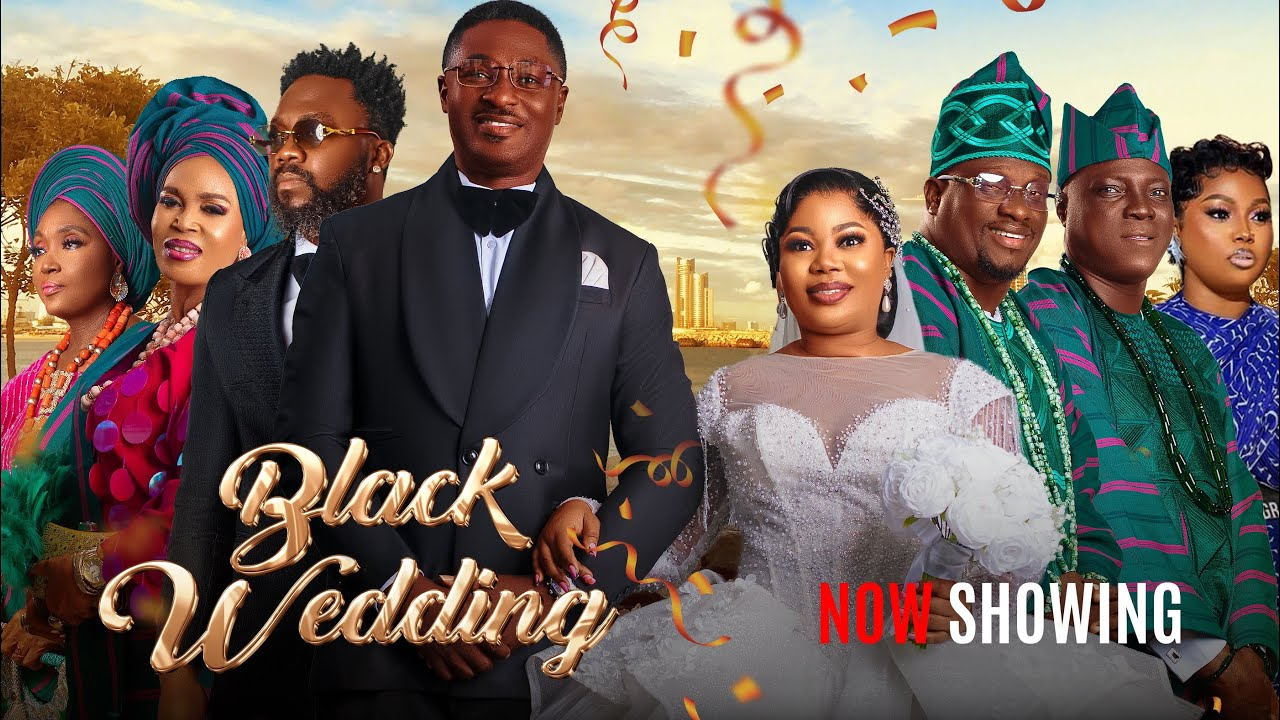
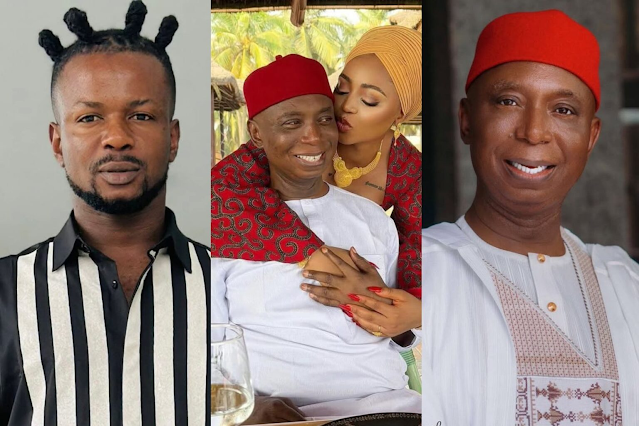

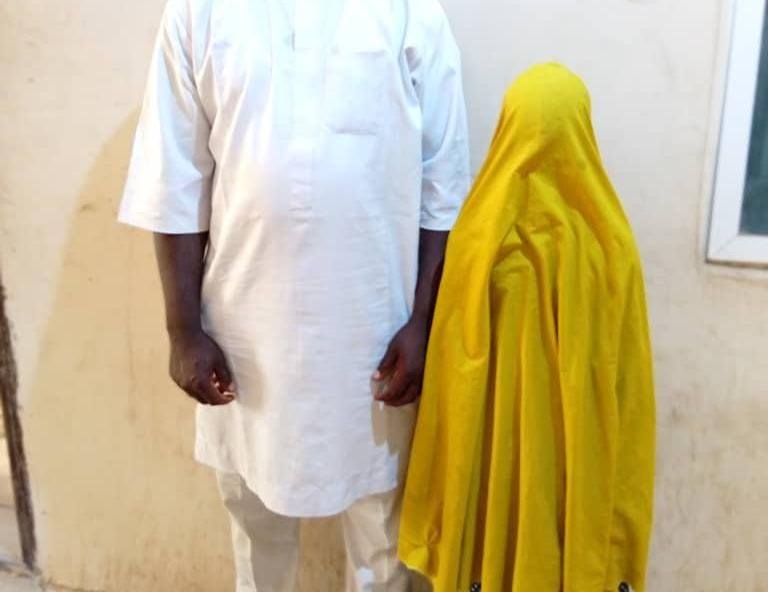

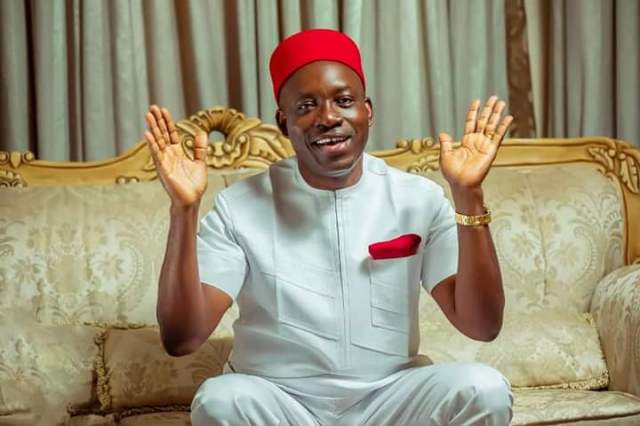
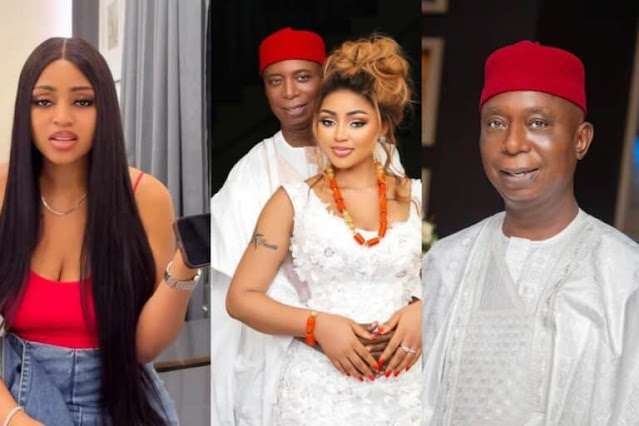



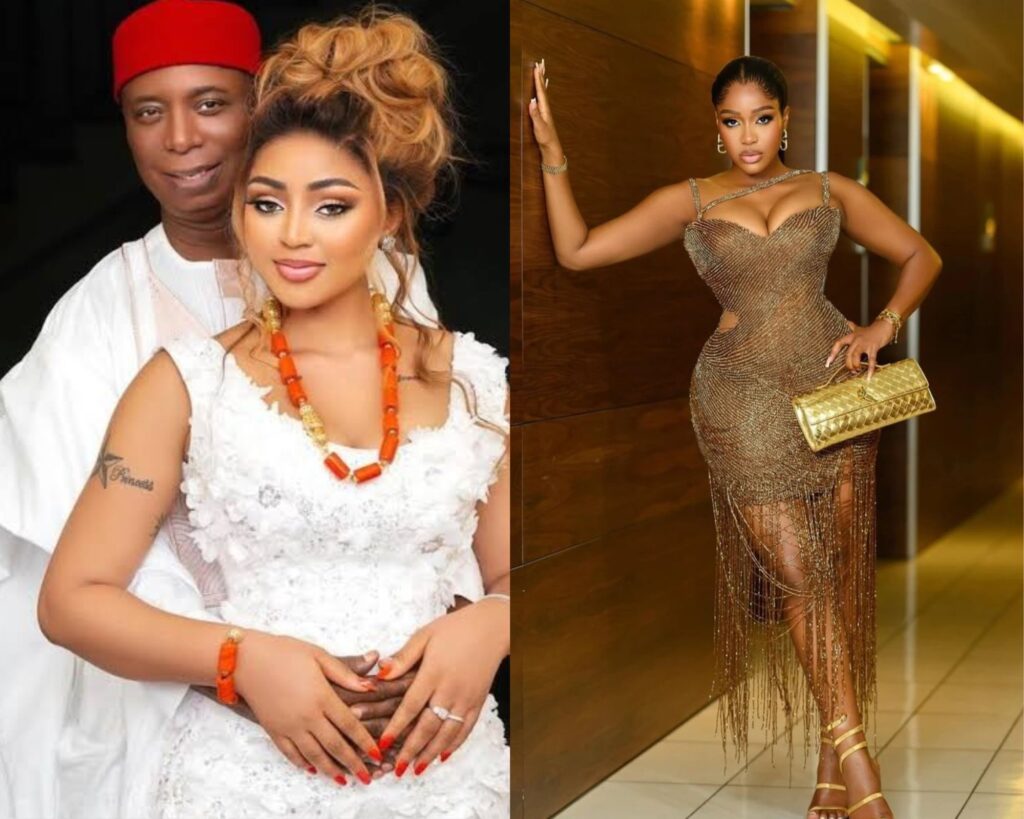


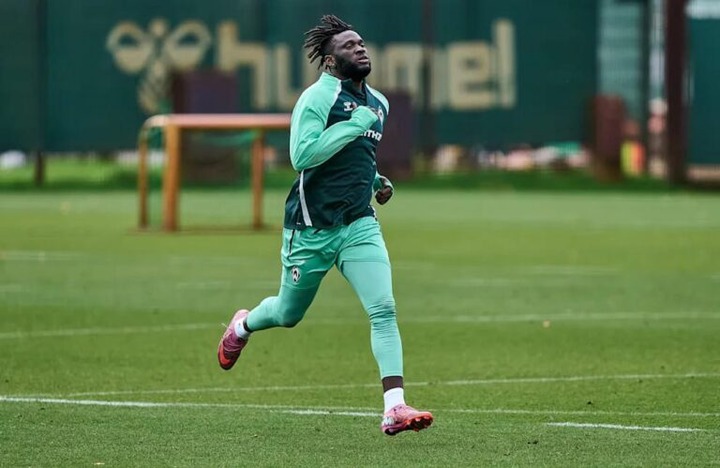

Leave a Reply